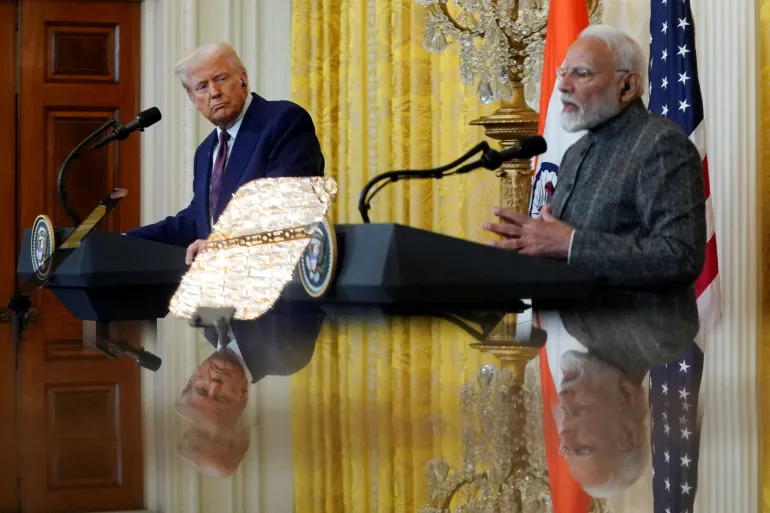Washington Pressures New Delhi to Stop Russian Oil Flow
October 20, 2025152 ViewsRead Time: 2 minutes

Font Size:
16
In a new escalation between Washington and New Delhi, U.S. President Donald Trump threatened to maintain high tariffs imposed on Indian goods unless India stops importing Russian oil, in a move that highlights the widening gap between the two countries over energy issues and international alliances.
Trump told reporters aboard Air Force One that he spoke with Indian Prime Minister Narendra Modi, noting that the latter "informed him that India would not deal with Russian oil," adding firmly: "If New Delhi does not comply, it will continue to pay hefty tariffs, which it does not want."
However, the Indian Ministry of External Affairs denied knowledge of any phone call between the two leaders, asserting that its priority remains "protecting the interests of the Indian consumer" amid fluctuations in global energy markets.
The issue of Russian oil is one of the main points of tension between Washington and New Delhi, as the U.S. administration believes that oil revenues fund the Russian war in Ukraine, while India relies on Russian crude as one of the low-cost energy sources that have helped stabilize local fuel prices despite disruptions in international markets.
Data indicates that India's imports of Russian oil accounted for about 36% of its total crude imports in 2024, allowing it to save billions of dollars on energy bills. However, White House officials say that New Delhi has already begun to cut its purchases of Russian oil by half, while Indian sources deny any significant reduction in the quantities imported.
This dispute comes after the United States imposed tariffs of up to 50% on Indian goods last August in response to New Delhi's continued purchase of Russian oil at discounted prices.
Observers believe that Trump's threats represent a real test of the complex relationship between Washington and New Delhi, as India seeks to balance its economic needs with its strategic alliances, while Washington attempts to redraw the lines of economic and energy influence in Asia following the Ukrainian war.